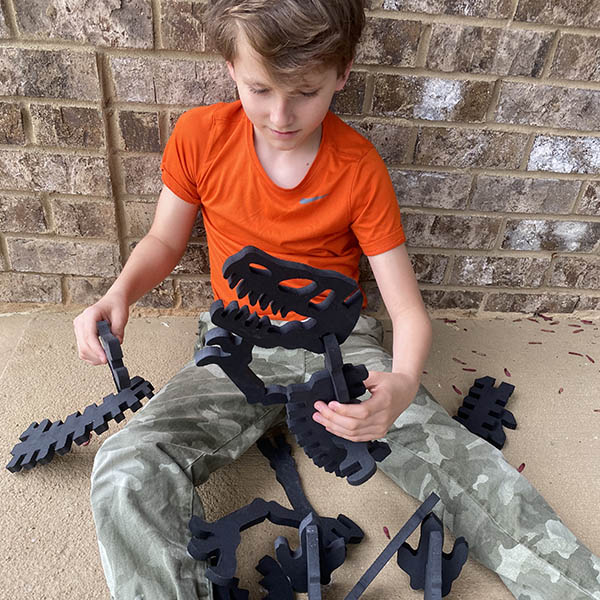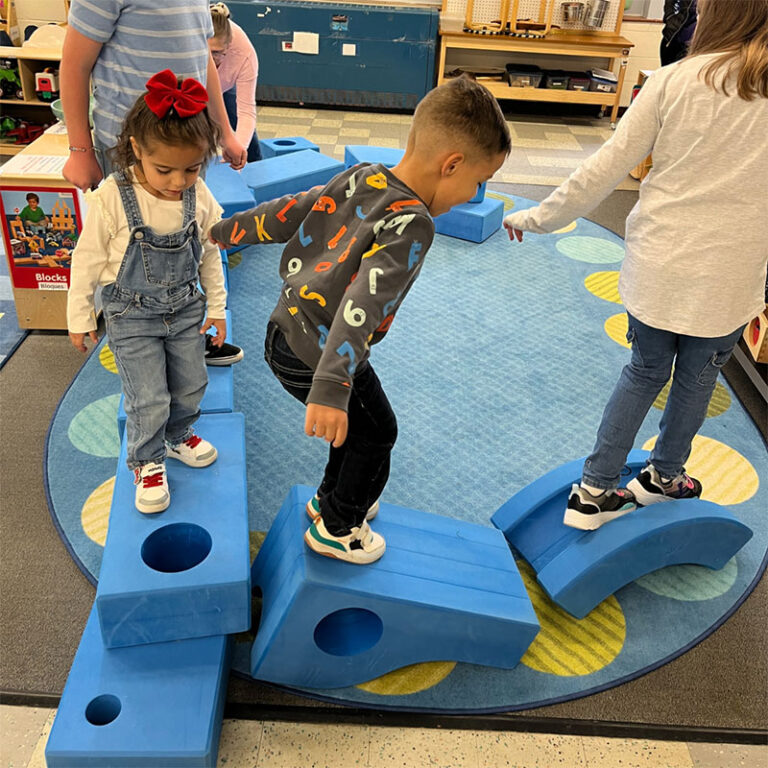By Andie Stallman, M.A.
What is Overstimulation?
There are so many opportunities for kids today to participate in extracurriculars- as well as pressure to get them involved in as much as possible! Structured activities such as sports or clubs can be very beneficial because they provide time to socialize with friends, get exercise, or learn new skills. Moreover, they give children things to do while parents work or take time for themselves. However, as is the case with most things, there CAN be too much of a good thing. Overscheduling children is possible and can actually do more harm than good, including causing too much stress, reducing opportunities to engage in creative thinking, and having detrimental effects on attention span and mental health. Constant exposure to structured activities can create “stimulation junkies” which are children who constantly seek sensory input (think hours playing video games) and cannot handle boredom or time alone. So, while some structured activities can help parent and child, it is important to be aware of a few things when deciding how many after school extracurriculars to sign up for.
#1: How old is your child? Child development experts suggest that organized activities before age 6 or 7 are not developmentally appropriate. Prior to this age, children should be encourage to discover their own interests through self-directed play and exploration, rather than relying on adults or planned activities to make those determinations for them. Unprogrammed, child-directed play has been shown to have numerous benefits, such as increased creativity, prolonged attention spans, and improved mental health, the rise in screen time and overscheduling poses challenges that require attention. Therefore, if your child is younger than 6 or 7 years old, prioritize spaces that allow them to engage in free play, explore their interests, and be bored. If you need after school care for your child for whatever reason, try to find programs that emphasize the value of free time and free play to ensure that your child is encouraged and allowed to explore!
#2: Understand and embrace “nothing”! I have personally fallen victim to the black hole that is the internet and mindless social media swiping. It sucks to feel bored knowing that entertainment is only as far away as a few taps on our phones. This makes it more important than ever to encourage children (and yourself) to sit with boredom and embrace the freedom that comes from doing nothing. I don’t mean to say that you should put your child in an empty room and leave hem for hours, though. Instead, give them materials with no clear purpose and no set plan and see what they come up with! Blank paper and writing tools, ambiguous building blocks (such as Imagination Playground’s Blue Blocks), or time outdoors are only some examples of ways you can create space for your child to explore their imagination. This might feel uncomfortable for both of you at first, but allowing a child to sit in boredom or “nothing” pushes them to develop their own ideas, create worlds, and think creatively about how to entertain themselves.
#3: Being mindful when selecting structured activities! I don’t mean to say that structured activities should be avoided at all costs. They can be extremely positive experiences with numerous benefits. However, the number and the type of activities in which your child is involved is very important. Ensuring that there is a balance between time spent in structured activities and time dedicated to the “nothing” that I mentioned before. This means, your child’s schedule should have time when they are not required to do homework, travel to school, prepare for structured activities, etc. Their “nothing time” must truly be free and unaccounted for. Additionally, helping your child identify activities they have a genuine interest in (both structured and unstructured) is invaluable. Allowing them to try new things, explore new passions, and engage their interests outside of school encourages deeper engagement, enjoyment, and benefit.
#4: Be aware of signs your child is overwhelmed! Every child is unique and requires a different balance of structured activities and free time. While unstructured, unscheduled time is critical for all children, your son may benefit from more time in chess club while your daughter needs more free time to draw or journal. Keep an eye out for signs that your child is stressed or overwhelmed! Physical complaints, such as stomach aches or headaches, trouble focusing, difficulty sleeping, and irritation are some examples of signs your child is overscheduled. Remember, each child is unique and may require different levels of support and structure at different times. Observing and communicating with your child is crucial to finding a healthy mix of structured activities and unstructured time. Another tip: If you feel stressed and overwhelmed trying to keep up with their schedule, chances are your child(ren) feels the same way!
Extracurriculars are a valuable and necessary part of a child’s weekly schedule. However, thoughtfully choosing and tracking your child’s time in structured activities can help ensure the benefits of these activities continue to outweigh levels of stress they may cause. Learning about your child’s needs, prioritizing time for your child to explore “nothingness”, and mindfully choosing activities that support your child’s wellbeing without overtaking their schedule can help prevent “stimulation junkies.” Communicating with your child and watching out for non-verbal signs of stress is crucial to help both you and your child thrive in the digital age.
References
Baranowski, T., Thompson, W. O., DuRant, R. H., Baranowski, J., & Puhl, J. (1993). Observations on physical activity in physical locations: age, gender, ethnicity, and month effects. Research quarterly for exercise and sport, 64(2), 127–133. https://doi.org/10.1080/02701367.1993.10608789
Children’s Health (Director). (2009, December 14). The overscheduled child. https://www.youtube.com/watch?v=XvB4bUYfjjg
Hedderson, M. M., Bekelman, T. A., Li, M., Knapp, E. A., Palmore, M., Dong, Y., Elliott, A. J., Friedman, C., Galarce, M., Gilbert-Diamond, D., Glueck, D., Hockett, C. W., Lucchini, M., McDonald, J., Sauder, K., Zhu, Y., Karagas, M. R., Dabelea, D., Ferrara, A., & Environmental Influences on Child Health Outcomes Program. (2023). Trends in Screen Time Use Among Children During the COVID-19 Pandemic, July 2019 Through August 2021. JAMA Network Open, 6(2), e2256157. https://doi.org/10.1001/jamanetworkopen.2022.56157
McCormick R. (2017). Does Access to Green Space Impact the Mental Well-being of Children: A Systematic Review. Journal of pediatric nursing, 37, 3–7. https://doi.org/10.1016/j.pedn.2017.08.027
Melville, K. (2020, August 14). Overscheduled Child: Are Our Kids Too Busy? Chris Kresser. https://chriskresser.com/overscheduled-child/
Stimulation Junkies. (n.d.). Retrieved July 3, 2023, from http://www.thesuccessfulparent.com/categories/general-parenting/item/stimulation-junkies#.YxJiDC-B23k
Meet Andie Stallman, Imagination Playground’s childhood and play expert. Stallman holds a masters degree in Child Studies and Human Development with a special focus on clinical and developmental health and psychology. She is currently conducting research through McLean Hospital on adolescent mental health as she prepares for a PhD. Additionally, Stallman has experience in school and childcare environments working directly with children and teens who have a variety of needs and diagnoses, including schizophrenia, cerebral palsy, and autism spectrum disorder. This range of experience and knowledge brings a unique aspect to Imagination Playground’s commitment to researching the importance of play and promoting lifelong well-being starting in childhood.









